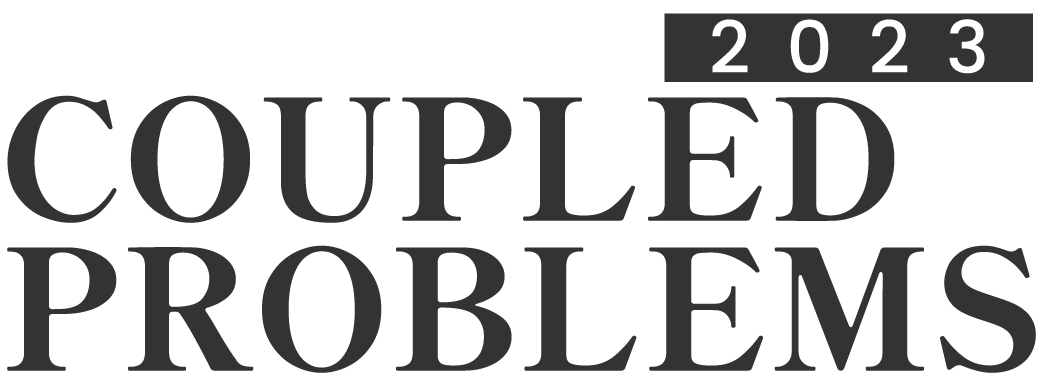

A chemo-mechanically coupled theory including elasto-plastic deformations for Finite-Element simulations
Please login to view abstract download link
Currently, chemo-mechanically coupled processes are of more and more interest as use cases occur in various applications, e.g. hydrogen diffusion \cite{DiLeo}. These applications need robust models which combine the chemical and mechanical fields in combination with an agile implementation strategy. Thus, the already well established thermo-mechanical coupling provides some very interesting similarities. In an ongoing work, we use these similarities to interpret a chemo-mechanically coupled theory more like a thermo-mechanically coupled theory as we use the chemical potential as the chemical degree of freedom. This interpretation offers the opportunity of recycling already established implementations from ABAQUS.\\ An approach is presented where we use a more advanced elasto-plastic model which makes the yield stress depending on the local hydrogen concentration, as e.g. used in \cite{Barrera}. This leads to a stronger coupling between inelastic deformations and concentration changes as the deviatoric plastic strains and the volumetric strains are depending on each other. The strongly coupled evolution of these internal variables is implemented via ABAQUS subroutines which have their origin in ABAQUS temperature-displacement procedures. \\ The general applicability of our derived implementation approach in various chemo-mechanically coupled settings is shown, as this framework can, e.g., also be extended to model diffusion of Lithium Ions in batteries, e.g. \cite{DiLeo2}.

